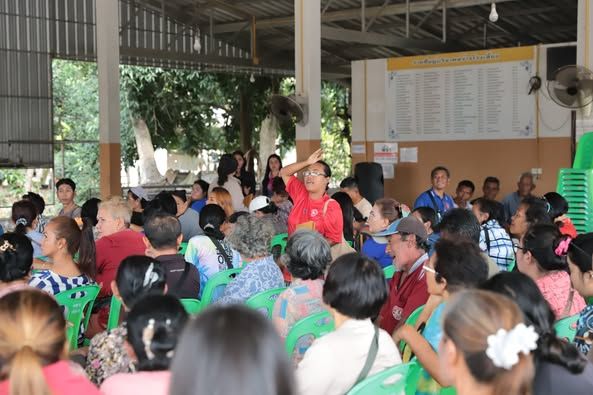Move Forward Party Agreement Triggers Uncertainty
The recent memorandum of understanding (MoU) signed by eight parties to form a coalition government threatens the future of businesses thriving under the current freer cannabis policy. The Move Forward Party-led bloc has agreed to reinstate cannabis as a narcotic drug under the jurisdiction of Thailand’s Ministry of Public Health and regulate its use, cultivation, import, and export according to specific laws.
Opposition to Loosened Cannabis Regulations
Former Move Forward Party (MFP) list-MP Pol Maj Gen Supisal Pakdinaruenart supports the relisting of cannabis as it would allow authorities to fully control its abuse. He claims that the absence of a specific law governing cannabis use has created loopholes and prompted the Public Health Ministry to list it as a controlled herb under the Thai Traditional Medicine Protection and Promotion Act. However, this has not addressed concerns about the spread of cannabis shops and the sight of people selling and smoking weed on the streets.
According to Dr. Adisak Plitapolkarnpim, director of Mahidol University’s National Institute for Child and Family Development (NICFD), pediatricians only support cannabis use for medicinal purposes to relieve pain, not recreational use. He argues that decriminalization has led to the widespread availability of cannabis-infused products and ambiguity in regulations controlling its use.
Entrepreneurs Concerned About Business Impact
Relisting cannabis as a narcotic drug could have major economic implications for entrepreneurs in the cannabis sector. Sanga Ruangwattanakul, president of the Khao San Business Association, reveals that over 40 cannabis-related operators in the area have invested at least one million baht per business, contributing to an estimated value of 30 million baht per month. He believes the current policy has attracted foreign visitors to Thailand and has the potential to create a new tourism sector.
However, business operators are adopting a wait-and-see approach due to the MFP-led alliance’s policy change. Sanga disagrees with the relisting of cannabis and calls on the new government and lawmakers to work towards better regulation instead. “The next part is to issue a law for better control, not for declaring it as illegal,” he said.
Need for Clear-Cut Regulations and Supervision
Supisal emphasizes the need for clear-cut regulations supporting the beneficial uses of cannabis rather than legalizing the plant. In his opinion, cannabis shops should be supervised by doctors, and cannabis-based products must face tighter regulations. He also suggests zoning measures to keep cannabis out of children’s reach.
Daycha Siripatra, founder of the Khaokwan Foundation and a vocal supporter of medical marijuana, recommends holding a national referendum on the cannabis policy. He criticizes MFP leader Pita Limjaroenrat for going back on his word about cannabis and urges better control of alcohol instead.




